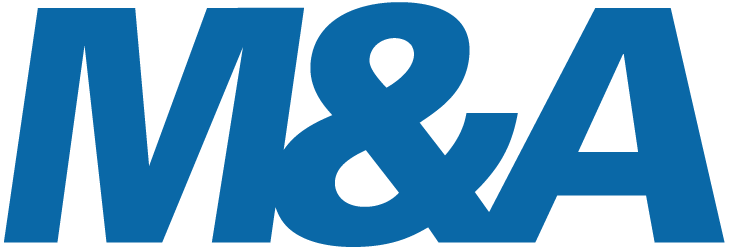Pitch Best Deal 2022: DIF Capital Partners and PGGM – Fudura

Name of the deal: DIF Capital Partners and PGGM acquire Fudura from Enexis Groep
Date announced: 24 March 2022
Date closed: August 2022
Published value: 1.3 billion euros
Buyer(s): DIF Capital Partners and PGGM
Target: Fudura
Seller: Enexis Groep
Involved firms and advisors
Involved firms and advisors buy side:
Jefferies (M&A Advisory) EY (Financial Due Diligence, Tax Advisory and Consultancy), Meijburg & Co (Tax Advisory), Clifford Chance and Freshfields Bruckhaus Deringer (Legal advisory Corporate M&A), EY Parthenon and BCG (Consultancy), DIF Capital Partners (Private Equity Management)
Involved firms and advisors target:
N.a.
Involved firms and advisors sell side:
Rabobank (M&A Advisory), KPMG (Financial Due Diligence), Atlas Fiscalisten (Tax Advisory), Stek (Legal Advisory Corporate M&A), McKinsey & Company (Consultancy)
Pitch
Brief description deal / Deal outline
Enexis Groep initiated a process to sell its subsidiary Fudura, a leading provider of medium voltage infrastructure solutions, to allow it to tap into new avenues for accelerated growth. With the new owners being PGGM and DIF Capital Partners Fudura is well-positioned to unleash its full growth potential to become an important platform in the energy transition space.
Why should this deal win the Award for Best Deal 2022?
The sale of Fudura lies at the heart of the Dutch energy transition. Given that Fudura is an integral part of the Dutch energy market, this transaction makes for a landmark deal with high impact for the seller, the company itself and the Dutch energy landscape in general. The transaction showcased the most exciting parts of an M&A process: operating within short timelines, maximising competitive tension and reaching a stellar valuation, while explicitly safeguarding the future of Fudura and its employees through non-financial covenants as well as providing the company with new avenues for accelerated growth. The widespread attention that this transaction has commanded and the interest it has attracted serves as an undisputable proof of the continuously increasing value and importance investors across the board assign to energy transition assets.
As a market leading B2B provider of medium-voltage infrastructure, metering devices and related data services in the Netherlands, Fudura is a stellar representative of the growing energy transition asset class. It is uniquely positioned to play an important role in accelerating the electrification of businesses and industry in the Netherlands. Fudura unburdens its customers in their journey to reduce their CO2 footprint, their dependency on natural gas and improve the energy security.
By partnering up with the consortium of DIF and PGGM, Fudura has attracted long-term investors that will support the company to further develop as an energy transition platform for business customers across the Netherlands. The transaction was structured in a way that enabled both an attractive valuation that allows Enexis to further invest in the vital Dutch energy infrastructure, as well as ensuring sustainability, business continuity and stable employment at Fudura.
The broad auction process led by Rabobank M&A attracted interest from infrastructure funds, pension funds and strategics across the world. Maximised competitive tension, optimal positioning of the company, and a clear investment case led to an outlier valuation of EUR 1.3 billion. The valuation testifies to the unique position of Fudura and does justice to the vital role the company can play in the broader energy landscape. As all parties involved in this deal (Enexis, Fudura and the acquiring consortium) are all proudly Dutch, this landmark transaction clearly advocates the pioneering role of the Netherlands in the energy transition efforts being made across Europe and the globe.
Deal rationale:
Within Enexis’ regulated environment, Fudura faced limits to reach its full potential. Enexis therefore initiated the process to enable Fudura to accelerate its growth in the unregulated domain, while the proceeds would enable Enexis to fund further investments in the electricity grid, which once more strongly indicates the underlining impact of this transaction on the overall Dutch public interest.
PGGM, as a long-term investor and a Dutch pension fund, is the ideal partner for Fudura. Investing in Fudura allows them to commit Dutch pension funds to play an active role in realising and accelerating the energy transition across the Netherlands. Furthermore, the investment means that PGGM is taking ownership of a frontrunner in the sector that spearheads the Dutch transition towards CO2 neutrality.
For DIF, the acquisition seamlessly fits their ambitions to have a CO2 neutral investment portfolio by 2050. As a Dutch infrastructure fund, they are dedicated to supporting the energy transition by playing a crucial role with their investments across the Netherlands and Europe.
What is the impact of this deal for the company?
Fudura will no longer be part of a regulated Distribution System Operator (DSO), which allows the company to grow beyond regulated activities, allowing it to unlock the untapped growth potential by broadening the current product portfolio with new solutions and services such as solar panels, batteries, EV chargers and electric heating. By adding these new services and leveraging on the installation know-how, Fudura will play a central role in the energy transition, with the strong additional support from the new owners. During the sale process, it was clearly outlined by the sell side advisor that not only financial considerations would be taken into consideration, but potential buyers needed to show their commitment by providing comfort on future employment terms, as well as their view on sustainability and business continuity of Fudura. The future of Fudura is thus safeguarded in multiple financial and non-financial areas.
What is the impact of this deal for the direct stakeholders?
The sale of Fudura will improve Enexis’s financial position as well as its opportunities for financing its core tasks in the energy transition. This will benefit the shareholders of Enexis by creating direct and indirect value.
The acquiring consortium is now able to play an important role in one of the most important sectors in the Netherlands (and globally) and contribute to the challenges that are being faced. Hence, also the acquiring consortium will be creating direct and indirect value for multiple (indirect) stakeholders.
What is the impact of this deal on society?
As recent geopolitical events cause unprecedented times in Europe and put pressure on the overall energy supply, Fudura plays a key role in helping Dutch businesses in the transformation towards more sustainable energy alternatives. Fudura will speed up their efforts to roll out various solutions such as solar panels, EV charging and electric heating solutions.
From a Dutch perspective, Fudura will also play an important role in balancing the grid by leveraging on the know-how of battery technology and using their data services to enable sustainable energy supply.
What was most complex about this deal?
Enexis operates regional regulated electricity and gas distribution networks and its shareholder base consists of a large number of Dutch municipalities and provinces. As a result, Enexis is acutely aware of its role in society and the public interest, which meant a transaction had to balance the interests of all of its stakeholders. This meant sometimes conflicting needs had to be navigated, such as the desire for deal certainty and a short transaction timeline, in combination with a predictable, transparent process that maximised valuation as well as ensured non-financial conditions such as employment terms and the reputation of a buyer. In the end, the transaction process designed and led by Rabobank M&A was completed on schedule and as planned and delivered a highly satisfactory outcome on all of these dimensions.
In addition, the deal concerned a carve-out from Enexis. Hence, the transaction included a specific workstream on all carve-out related work including stand-alone cost assessment, SLAs and a complex audit process. This additional workstream, as well as the complex stakeholder environment described above, created pressure on the overall timeline, which for example resulted in Information Memorandums being distributed over the Christmas holidays. The ambitious timeline required tight process management and overall coordination of all involved stakeholders.









